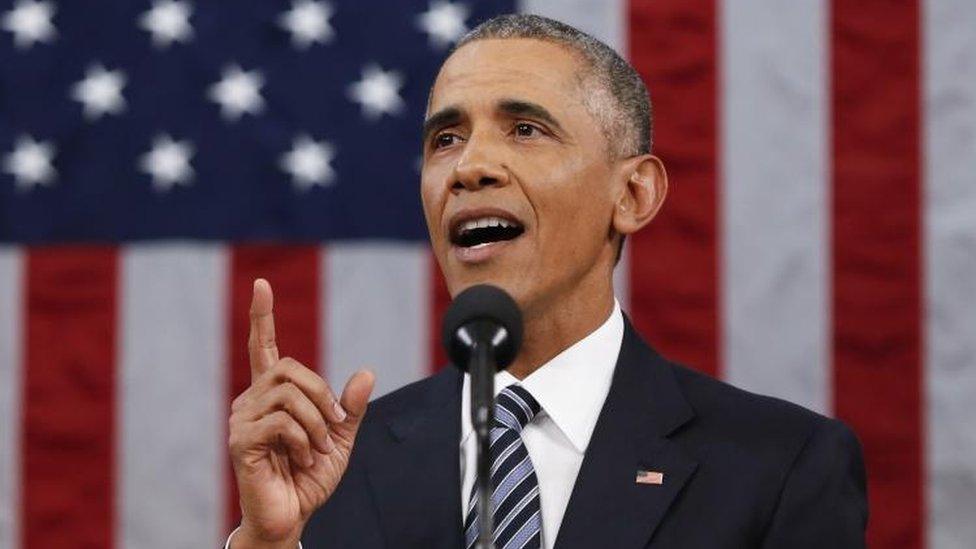Is Obama’s pro-EU stance 'economically literate'?
- Published
- comments

For a country with a current account deficit approaching 7% of gross domestic product - Britain - America is good news.
The UK exports £47bn worth of goods and services a year to America, Britain's most important single trading partner.
It imports £41bn, creating a healthy trade surplus.
In the European Union, only Germany exports more.
The question ahead of President Barack Obama's arrival tonight, is whether the UK's membership of the European Union is a help or a hindrance to that trade relationship.
President Obama's administration believes it is a help.
I interviewed Jack Lew, the US Treasury Secretary, in Washington last week and he made it clear that America saw Britain's position within the EU as positive for both countries.
When it comes to the approach to regulation, open markets, finance and employment flexibility in the EU, Britain is seen by the US as a useful ally in a single market of more than 500 million people.
Americans have never been as comfortable speaking French.
The big bear in the free trade room is the Trans-Atlantic Trade and Investment Partnership (TTIP).
This is an all-encompassing free trade deal being negotiated between the US and the EU which you can read about in detail here.
Many economists say the deal - if it is ever completed - could bring £10bn of value to the UK every year.
Might the UK lose out on that free trade dividend if Britain was to leave the EU?
The International Monetary Fund's chief economist and former adviser to President Obama, Maurice Obstfeld, certainly believes the UK's participation in any trans-Atlantic free trade agreement could be at risk if Britain were to leave the EU.
But there are a major couple of "buts" to that argument.
First mooted in the 1990s, the gargantuan TTIP process is still a long way from completion.
It is also mired in controversy on issues like "harmonisation" which some pressure groups see as a weakening of the present EU rules on matters such as the environment.
Second, if Britain votes to leave the EU, then it will happen not under President Obama, but under a different president.
And TTIP could well be slowly suffocated by either Hillary Clinton or Donald Trump, if they, as expected, are the two candidates.
Both have made it clear that they have little time for a trans-Atlantic free trade deal which they argue risks US jobs.
What their approach reveals is that the debate about free trade deals is often not about economics at all.
It is about politics.